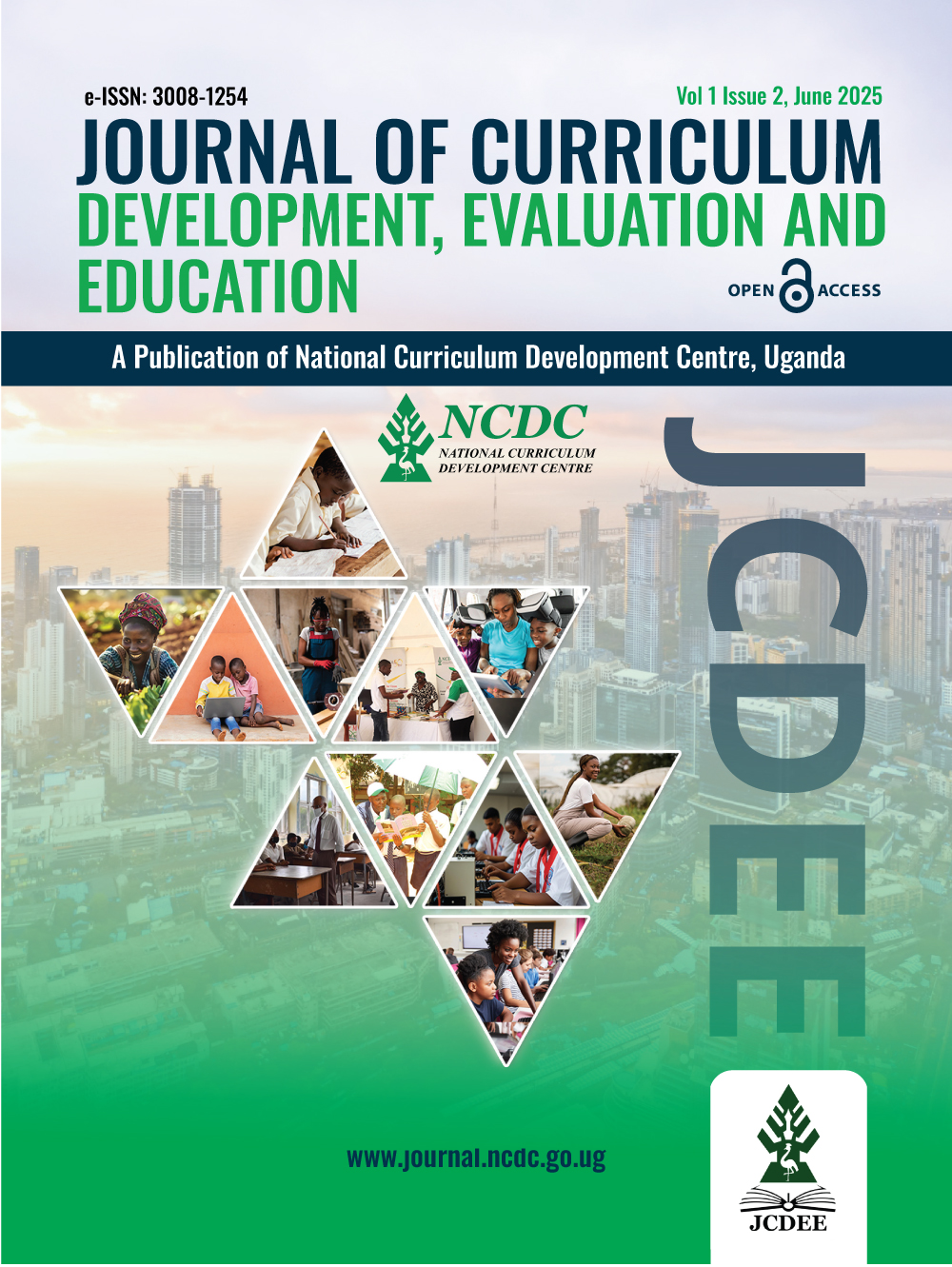Barriers to Adopting Innovative Teaching Methods in Private Secondary Schools in Gulu City: Implications for Curriculum Implementation
DOI:
https://doi.org/10.64948/JCDEE.v1.i2.2025.92Keywords:
Innovative Teaching Methods, Implementation Challenges Lower Secondary School Curriculum (LSSC), Private Secondary Schools, Professional DevelopmentAbstract
The study examined the barriers to adopting innovative teaching methods and proposed actionable strategies to enhance their use within private secondary schools implementing Uganda’s Lower Secondary School Curriculum (LSSC) in Gulu City. Although the Government introduced the LSSC to promote more meaningful and student-centred learning, different stakeholders have raised concerns about its practical implementation in classrooms. Utilising a concurrent triangulation mixed-methods design, we collected quantitative data from 96 teachers using semi-structured questionnaires and qualitative data from nine school administrators through interviews at 10 purposively selected Laroo-Pece and Bardege-Layibi Division schools. Quantitative results show that innovative pedagogies, such as Project-Based Learning, Group Discussions, and Debates, were most often utilised (mean = 2.69–2.63), while resource-demanding teaching methodologies, including the Flipped Classroom (mean = 0.73) and Contextual Learning (mean = 0.82) methods, were seldom employed. The most significant barriers were funding constraints (mean = 3.95), lack of access to educational technology (mean = 3.73), lack of institutional support (mean = 3.71), and inadequate teacher training (mean = 3.49). Qualitative findings supported these, with low teacher efficacy, lack of pedagogical support, large class sizes, limited instructional time, and poor administrative support being the most dominant barriers. Budget constraints and competing priorities were also cited by administrators as significant barriers to implementing innovative pedagogy, reflecting broader systemic and contextual factors that continue to work against the effective implementation of the LSSC. The research recommends additional teacher professional development, the provision of more teaching materials, and institutional-based support to spur intensive pedagogical change in private Ugandan secondary schools.


